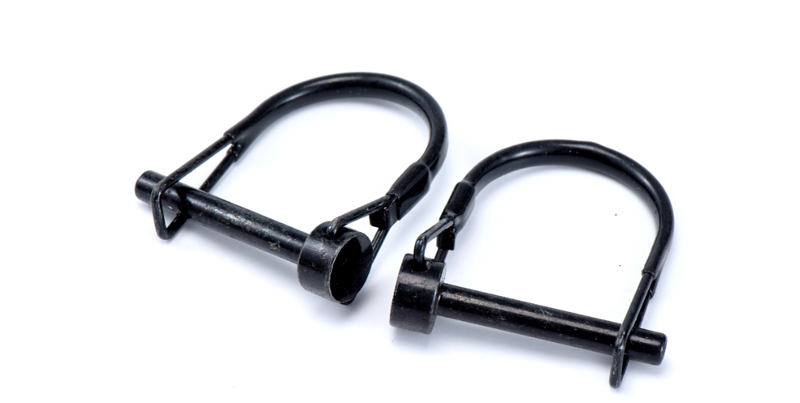D-Shape Pins, also known as D-shaped retaining pins or D-pins, are specialized Fasteners characterized by their unique cross-sectional shape resembling the letter "D." These pins feature a flat side and a rounded side, providing secure retention while allowing easy insertion and removal. Manufactured from high-strength materials such as carbon steel (Grade 8.8, tensile strength 800 MPa), stainless steel (AISI 304, corrosion resistance up to 500 hours salt spray), or titanium alloys (Ti-6Al-4V, yield strength 830 MPa), D-Shape Pins are engineered for precision alignment and load-bearing applications.
Key Characteristics: The flat surface prevents rotation within mating components, while the rounded side ensures smooth insertion. Typical tolerances range between ±0.025 mm for precision-ground variants, with surface finishes achieving Ra 0.8 μm to reduce friction.

Technical Features
Anti-Rotation Design: The flat side provides up to 90% greater torsional resistance compared to standard round pins, with tested shear strength exceeding 1,200 N/mm² in hardened steel variants.
Precision Fit: Manufactured to ISO 8734 standards with diameter tolerances of h8 for press-fit applications, ensuring 0.01-0.03 mm interference fits in most industrial applications.
Load Capacity: Axial load ratings range from 2,500 N (carbon steel) to 1,800 N (stainless steel) for 5mm diameter pins, with fatigue life exceeding 10⁶ cycles at 70% of ultimate load.
Temperature Resistance: Special alloys maintain structural integrity from -50°C to +300°C, with ceramic-coated variants extending this range to 800°C for aerospace applications.
Applications
D-Shape Pins serve critical functions across industries:
1. Automotive Systems
Used in transmission assemblies (withstand 400 N·m torque), gearbox linkages, and suspension components where vibration frequencies up to 2,000 Hz require secure retention. BMW's modular engine platforms utilize 6.5mm D-pins with Zn-Ni coating (12μm thickness) for corrosion protection.
2. Aerospace Engineering
Critical in wing flap mechanisms (load cycles >500,000) and turbine blade retention. Airbus A350 employs Ti-6Al-4V D-pins with 0.5μm surface finish to prevent stress concentrations.
3. Industrial Machinery
In CNC tool changers (positioning accuracy ±0.005 mm) and robotic arm joints subject to 10⁸+ cycles. Fanuc robots use hardened D-pins (HRC 60-62) in their J3 axis assemblies.
4. Medical Devices
For surgical robot articulations (cleanroom-compatible 316L stainless steel) and MRI-compatible titanium implants requiring non-magnetic properties (<1.05 μ).
5. Electronics Manufacturing
Precision PCB alignment pins (0.3mm diameter tolerance) in SMT equipment, with beryllium copper alloys (conductivity 22% IACS) for ESD protection.
Maintenance Procedures
Proper care extends service life by 300-400%:
Cleaning
Ultrasonic clean with pH-neutral solvents (7.0-8.5) at 40-60°C for 5-10 minutes
Remove debris using 0.3μm filtered compressed air
For medical applications: autoclave at 134°C for 18 minutes
Lubrication
Apply MIL-PRF-81322 grease (4-6μm film thickness) for high-load applications
Dry film lubricants (MoS₂, 5-10μm coating) for vacuum environments
Re-lubrication intervals: every 50,000 cycles or 6 months in standard conditions
Inspection
Check for wear using go/no-go gauges (ISO 8020)
Measure flatness with optical comparators (0.001 mm resolution)
Replace if diameter reduction exceeds 0.5% of nominal size
Storage
Maintain 30-50% RH with VCI packaging
Separate by material to prevent galvanic corrosion (ΔV <0.15V)
For long-term storage: nitrogen-purged containers
Installation Best Practices
Use arbor presses (0.01 mm/s feed rate) for precision insertion
Align flat side with reference datum (±0.5° angular tolerance)
For removal: hydraulic extractors (max 20 kN force)





